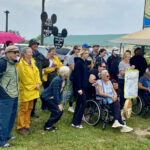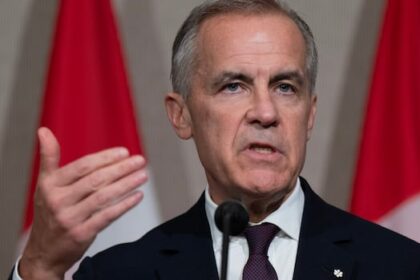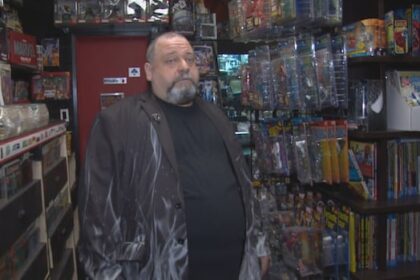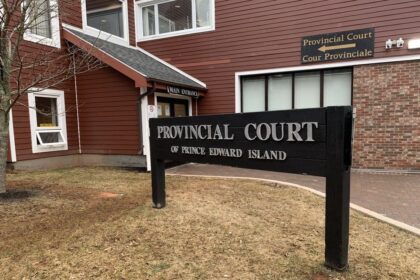Kanehsatà:ke’s security squad had to escort employees of the Mohawk Council of Kanehsatà:ke to their offices on Aug. 4 after elections were postponed by the chief electoral officer. Kanehsatà:ke does not have a police force, instead, the Kanestake Perimeter Security (KPS) handles situations such as this. “We’re supposed to have an election, we’re hours away. And then next thing you know, it’s canceled. Not a lot of information,” said KPS coordinator Kane Montour who was on the scene to try and keep the peace. “A lot of people were angry.” In a video livestreamed by a community member on Facebook, Montour showed APTN News the situation outside the MCK. “I witnessed … a lot of people yelling, a lot of disrespect being shown,” said Montour. “There [were] Elders here, there [were] some children, … we have to lead by example, do better.” The community is located about an hour’s drive west of Montreal. With no election, Graeme Drew, the community’s chief electoral officer, extended the mandate for all five councillors. In a zoom interview with APTN, Drew said the election had become unworkable because of flaws in the electoral code. “Rather than create all kinds of more problems to do with appeals and inappropriate, in this case, individuals that shouldn’t be on the ballot,” he said, “it just didn’t make sense to proceed any further with the election.” Drew is referring to three individuals on the ballot who, he said, have criminal records. Former grand chief Victor Bonspille told APTN that he flagged the issue with Drew ahead of the election. “I had brought this up at my nomination when I brought my papers [to] him,” said Bonspille. “I said, ‘Are you going to be doing background checks?’” Bonspille said that Drew told him he wouldn’t do background checks unless a candidate or a member requested that one take place. Drew said that’s according to Kanehsatà:ke’s electoral code. No criminal record is required in order to submit an application form to run. Drew, however, said candidates are required to be upfront about whether they have a criminal record by signing a form. Bonspille did not request an investigation. Drew said under the electoral code, there is a period when a community member can dispute a candidate if they’re able to provide proof of a criminal conviction via affidavit. Drew said this must be done within 48 hours of the candidates names being officially posted. Election CEO calls Appeals Board ‘Undemocratic’ Another red flag for Drew was the assembly of an appeals board. He said this is the culminating factor leading to his decision to postpone. “We had a very difficult time recruiting anyone who would be willing to sit on the board because of fear of retaliation, or just not wanting to get involved in the dynamics of a kind of a toxic environment for leadership right now,” said Drew. The appeals board requires a team of three individuals who must abstain from voting during the general election. In the event of a tie, the appeal board member’s vote would determine the winner. Chief Brant Etienne said out of 2,700 eligible electors, no one applied to be on the appeals board. The election is usually held on June 14, but due to delays related to the COVID-19 pandemic, the last election was held on July 31, 2020. Etienne said the electoral code has many holes in it that are open to misinterpretation. “We knew [the code] was bad, but just finally having confirmation that no––it isn’t just bad, it isn’t just difficult to understand–– it is actually missing critical components and that is what makes it so difficult to work with,” said Etienne. Etienne said the code must be adjusted before another election, as there could be a risk of the form for nomination being fraudulently signed again. “By their line of thinking, the submission of a criminal record for a candidate is voluntary, so thus they’re able to fraudulently sign the nomination forms and get onto council,” Etienne said. “Until it’s fixed, until there actually is concrete guidance on something like that, I think we’re going to keep running into this problem. Especially now that it’s known.” But Simon is wondering why the code wasn’t changed earlier. “They had four years to reform the code––if that was a priority within their mandate, why did they not do that in the four years?” said Simon. Some want Drew replaced to an election can be held now. Both Simon and Bonspille believe it’s important to move forward with the election. “Now it’s in the hands of our community and we’re going to be meeting next week,” said Bonspille. “It’s open to everybody, all our members, including the candidates to come up with a solution.” Requesting Federal Intervention Simon has requested the involvement of Indigenous Services and Crown-Indigenous Relations. Both federal departments told APTN that Kanehsatà:ke follows custom electoral code not the Indian Act, so they have no jurisdiction. “The intervention that I’m requesting is to launch an investigation into the conduct of the chief electoral officer and any interference by sitting council members,” Simon said in a Zoom interview with APTN. Simon also wants a third-party governance to oversee Kanehsatà:ke’s administration ahead of the election. “I’m reminding them of their fiduciary obligation to Kanehsatà:ke,” she said. While focus is on the election, Montour is hoping for an end to fighting within the community. “There’s a lot of intergenerational trauma that’s being carried on and people, we’re starting to see the effects of that,” Montour said. “I really wish that we can just really get back to being happy and start seeing, the better things of Kanehsatà:ke––instead of always being portrayed as negative.” Continue Reading
Kanehsatà:kes election postponed indefinitely over electoral code issues, infighting
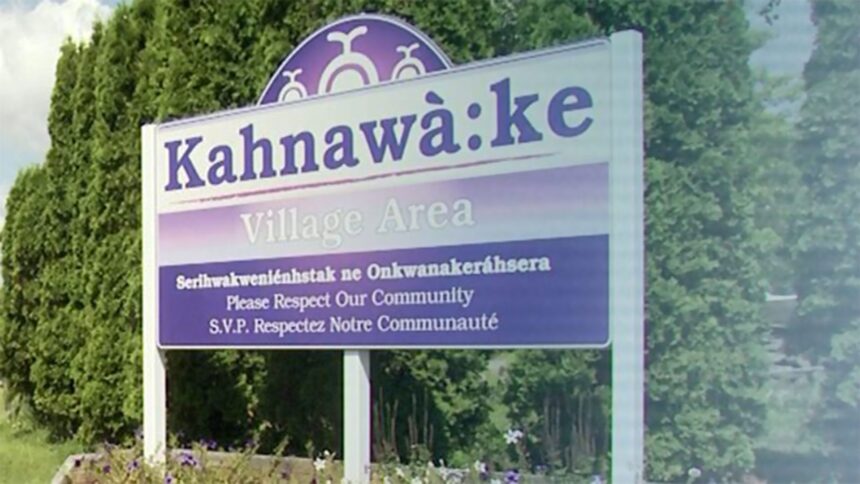
Leave a Comment



